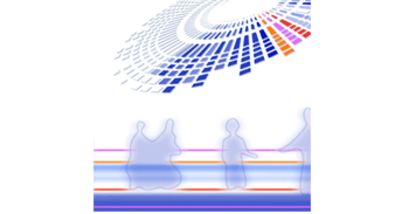Integration of Southeast Europe in the European Research Area
The work of the SEE-ERA.NET network primarily consisted of analyses, the exchange of information about successful models, and the strategic planning and coordination of research programmes, especially through meetings, workshops and conferences. These measures aimed to identify complementary approaches and implementing joint initiatives.
The ERA-NE initiative within the Sixth Framework Programme for Research and Technological Development intended to improve the coordination of research cooperation between Member States, EU institutions and third countries through the networking and mutual opening of national, bilateral and regional research programmes.
SEE-ERA.NET was financed by the European Commission and managed by a consortium of 15 institutions from 14 European countries (in alphabetical order):
- Albania
- Austria
- Bosnia and Herzegovina
- Bulgaria
- Croatia
- Former Yugoslav Republic of Macedonia
- France
- Germany
- Greece
- Hungary
- Montenegro
- Romania
- Serbia
- Slovenia
The objectives of SEE-ERA.NET were:
- To improve research cooperation in Europe by promoting the integration of Southeast Europe into the European Research Area
- To increase the value of existing bilateral cooperation agreements in the fields of science, research and technological development through multilateral cooperation
- To promote interregional research cooperation in accordance with the principles of the stabilization and association process in Southeast Europe
- To contribute to the realization of the “EU-Balkan countries Action Plan in Science and Technology”, which was adopted at the Thessaloniki Ministerial Conference in 2003.
These objectives were to be met through:
- The systematic exchange and dissemination of information and best practice models on bilateral and multilateral research and development activities. This is intended to contribute to a sound understanding of research systems and policy approaches in the SEE-ERA.NET partner countries ´
- Needs analyses for international cooperation from the point of view of researchers, research organizations and policy-makers in the Southeast European target countries
- Support of policy dialogue on the integration of the countries of the Western Balkans into the ERA and related awareness-raising activities in the European Union
- Identification of complementary approaches, followed by the implementation of joint instruments and initiatives, including a joint call for research proposals in 2006/2007 and a joint database of evaluators
The German partners – the BMBF and the IB – were responsible for developing the concept for the Pilot Joint Call (PJC), the first joint call issued by the 14 partner countries involved in SEE-ERA.Net. In addition, the German partners headed the drafting of the White Paper, a political strategy paper in which recommendations for future cooperation with the countries of the Western Balkans are defined. The White Paper was complemented by concrete project ideas and initiatives within the Joint Action Plan.
A “Management Training Event for Science Administrators from the Western Balkan Countries” was held in Bonn from 3 to 7 December 2007 as an accompanying measure to the PJC. The BMBF was responsible for this measure with support from the IB. Participants at the event were given an insight into the German research and funding system. The aim was to support the further development of science administration structures in the countries of the Western Balkans.
In a further accompanying measure to the PJC, the BMBF and the Macedonian Ministry of Education and Science organised the “SEE-ERA.NET’s International Conference on Evaluation and Benchmarking” in Ohrid (Former Yugoslav Republic of Macedonia) on 8 and 9 October 2008. The aim of the conference was to draw attention to the political importance and benefits of benchmarking and evaluating research institutes in the West Balkans. In addition to giving an overview of the current status of evaluation measures in the region, best practice examples from the European area were also discussed. A total of 42 experts and political decision-makers took part in the conference.








